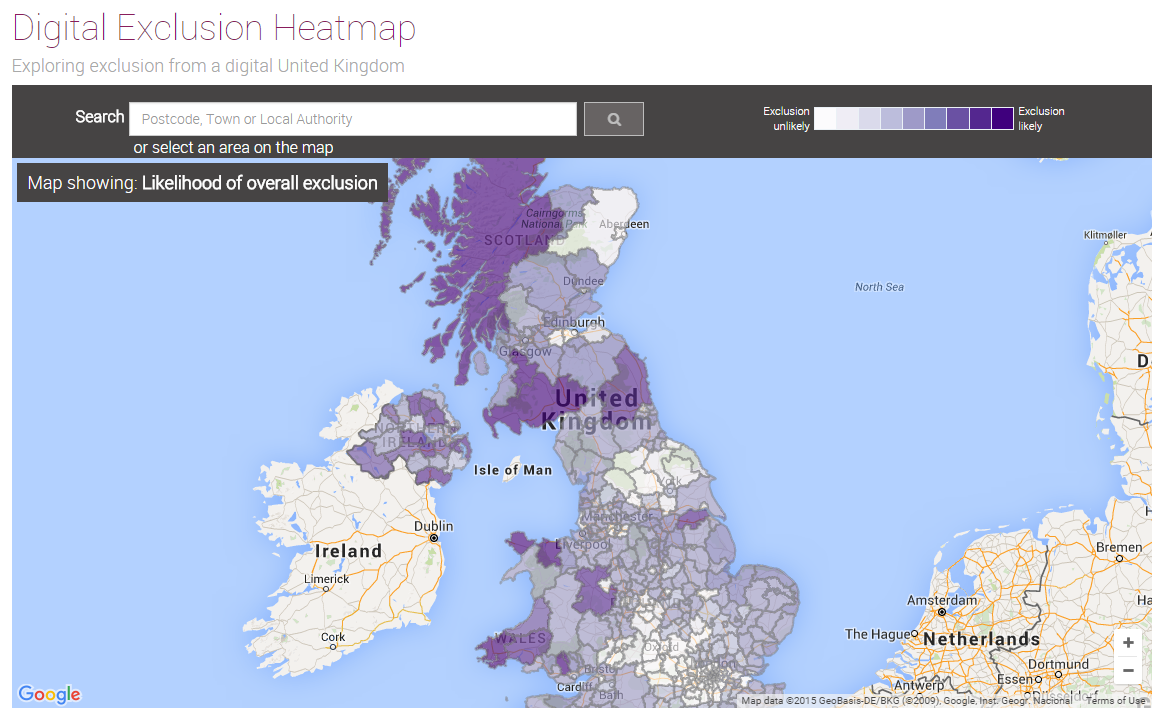 Lyndsey Burton, managing director of the UK-based consumer price comparison site Choose, looks at the implications of rising internet prices in the and how social tariffs could be used more effectively to tackle digital exclusion.
Lyndsey Burton, managing director of the UK-based consumer price comparison site Choose, looks at the implications of rising internet prices in the and how social tariffs could be used more effectively to tackle digital exclusion.
Broadband and mobile phone bills are set to rise in the UK by as much as 10% or more by April, at a time when COVID-19 has both increased our reliance on broadband and mobile phones, as well as pushing more services online.
Around 19 million broadband customers will see their prices rise by 9.1-9.3%, and many of the 72 million contract mobile customers will see rises between 7.5% and 11.4%+. This is because providers have been increasingly adding above inflation price rises to their contracts – meaning bills will go up even when customers are unable to switch away.
On top of projected increases in inflation on the back of rising energy and fuel costs, this is a huge increase set to push millions into financial difficulty and potential disconnection. Choose.co.uk ran a survey in January that revealed more than 1 in 10 people (11%) said they wouldn’t be able to afford the upcoming above-inflation price rises on their broadband and/or mobile bills. Tesco Mobile, a fixed price provider, revealed similar findings at the start of 2021, with 14% of people worried they could face disconnection because of arrears. Full-fibre broadband provider Hyperoptic also more recently found 48% of people wouldn’t have signed their contract if they’d been aware of the price increases.
Ofcom’s research, carried out during the first year of the COVID-19 pandemic, found that 19% of customers experienced an affordability problem with broadband or mobile; 11% needed to make changes to their package or tariff to make it affordable; 5% reduced spending on food and clothes to stay connected; and 4% cancelled a telecoms service due to affordability. This was in 2020 – a time when inflation was less than 1%.
The price rises set to come into effect in the next few months are a clear indication of Ofcom’s failure to protect consumers from the ‘material detriment’ they’re supposedly regulating against. In 2016, Ofcom ruled that providers were no longer allowed to increase prices mid-contract without also allowing a customer to side-step that contract, penalty free, if they chose or needed to do so.
Yet, despite this, eight fixed-line broadband providers added above inflation annual price rises to their contracts in 2021, with two providers already doing so. Because these increases are written into the terms and conditions of the contract, Ofcom’s rules don’t apply. Meaning customers have no choice but to pay the increase or pay a fee to leave.
Lack of regulation around social tariffs
In addition to this loophole in Ofcom’s regulation of mid-contract price rises, is another soon to be spotlighted issue: a lack of regulation around social tariffs. Ofcom’s research during the pandemic also highlighted specific groups that were most at risk of disconnecting. This included 38% currently unemployed and looking for work; 27% on the lowest household income bracket; and 25% in receipt of at least one benefit.
While this might not be surprising in itself – it underlines the need for social tariffs, as these are the groups of people who would be eligible. However, there are just four social broadband tariffs available in the UK right now, and they are not always easy to access. At Choose, we’ve heard from many people who’ve struggle to access these social tariffs, with issues ranging from uninformed customer services staff, complicated application processes, drawn out responses, and needing to be an existing customer (on a standard tariff) to apply.
The four social broadband tariffs currently available are provided through BT, Hyperoptic, KCOM and Virgin Media. Prices range from £15 to £20 per month and may or may not include a phone line. Eligibility criteria also varies between providers. There are several changes that I would argue need to be implemented to reduce digital exclusion:
- Increase the eligibility guidelines and ensure eligibility is consistent between providers and therefore clear to the consumer.
- Access to social tariffs need to be improved, with any limitation that consumers must be existing customers of the provider removed. This is a requirement that merely acts as a barrier to prevent people from applying for and utilising these tariffs when needed.
- Pricing should be streamlined or capped across all providers to ensure those in need aren’t unfairly penalised by the networks available where they live. And to ensure inclusion, despite lessening use, phone lines should also be provided as standard or at least as an option from all providers, which is currently not the case.
- Awareness needs to be improved as well, both with consumers and also in-house staff to ensure the correct information is given to people applying. This is something Ofcom already agrees with, as they themselves pointed out “take-up of these products is currently low, due in part to low levels of promotion of such tariffs by providers”.
While in future Ofcom plan to monitor the situation and believe there could be a strong case for exploring whether regulated social tariffs would be necessary, unfortunately, they do not have the power to introduced these without being direct to by the Government. An additional problem is the speed at which regulatory changes are implemented, often only being provisioned years after they first become needed, just as we’ve seen in the energy market with Ofgem.
As 2022 continues, the financial struggles of the living cost crisis will see more people disconnect and suffer digital exclusion unless more is done to safeguard the consistency, availability and awareness of social tariffs to ensure people stay connected.
This article represents the views of the author and not the position of the Media@LSE blog, nor of the London School of Economics and Political Science.
Featured image: Photo by Possessed Photography on Unsplash





